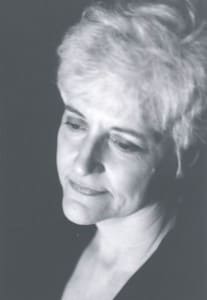

This first life story from the forthcoming book co-authored by C.J. Fitzsimons, is condensed from an interview with a One. In the book there will be eighteen life stories, two for each Enneagram style
Style One: Evolution of Consciousness
“My notion of goodness or rightness has shifted over the years, so in that sense there’s been some transformation. But I’m nervous about a word that sounds a bit pretentious. For me there’s been an evolution of consciousness, a shift within the One worldview that it’s important to be impeccable. My notion of impeccability has become a little deeper over the years, a little less nit-picky in terms of, Oh, we’ve got to look perfect. We’ve got to have every hair in place. We have to give perfect dinner parties. Now, it’s more, What is the perfect way of helping this person? Or maybe not helping, of just getting out of the way.
“Prior to learning about the Enneagram I’d assumed everybody thought the way I did and was aware of right and wrong. It never occurred to me that others might have a different focus of attention. That opened up the question, If I could be so mistaken about the way the world is, could I not be mistaken about a great many other things?
“A number of factors have led to my growing up. The first was to meet my partner – far and away the most important factor in my evolution, partly because I was terribly insecure about myself, about my value, my attractiveness, all of it. We’re all changed by love. And the fact that this absolutely wonderful man could not only love me but keep on loving me unconditionally had to change me.
“Becoming involved with regular meditation has been a huge factor in terms of getting a picture of my own monkey mind, the way it races around and goes in fifteen directions. I was beginning to have symptoms of an ulcer and I’d read well-founded scientific evidence that meditation had effects on certain physiological patterns. I thought, My God! I am really going in a bad direction here. I’ve got to find a way out of it and here’s a technique. So I took a transcendental meditation course and have been doing regular meditation ever since. As a result of my experience with meditation, the personality also seems to me a garment that we put on, like the body. I came to that belief before I ever knew the Enneagram. And the Enneagram seems to reinforce that our personality, our fixations, our preoccupations are also garments.
“Body work has been another important factor in making me aware of my own process, a fabulous way of coming to look at the anger Ones tend to deny –any exercises that involve bringing up anger; something as simple as pounding a pillow brings up a lot of rage, and then pain and sadness. I used to think, pre-meditation, that if I ever let my anger escape, it would be this volcano that would devastate the countryside for miles around! Especially through the body work, I learned there are ways to release it and you don’t devastate the countryside, no one dies, and no tragedy occurs. So you come to allow the lid to rest a little more lightly on the pot. You’re not pushing it down so hard for fear the contents will explode. It’s not quite such a pressure cooker. I’m more in touch with my anger than I was when I was younger. I’m aware when it comes up, I don’t always squash it; I sometimes at least let it be expressed one way or another.
“A vivid insight for me was the pattern created by imbalance of centers as conceived by Riso and Hudson for the One – that the moving center is inadequate, so one flogs it with feelings, using the feeling center to enhance, to hype, to add wattage to the moving center. The thinking center is off to the side uninvolved in this little drama. It made me suddenly aware of this pattern in my work life, where I’d done nothing to avoid situations in which I’d have a grievance with someone, thus have an excuse to get angry, and the anger would allow me to separate from them and go off to do creative projects on my own. I thought, Oh, my God, this is appalling! I’d never doubted that I have passionate feelings; but the fact that I’d used them to get myself into motion – to enhance what I perceived as inadequate will power – shocked me. I asked myself, Do I really need to follow this pattern? Is there some other way? Could some fuel other than anger get me in motion? And I answered, Yes, there’s love! And I love what I’m doing. Is it not possible simply to allow that love to carry the day?
“As a child I was socially inept, feeling that nobody liked me. I didn’t have many friends, didn’t really know how to play the game. As an adult it’s a skill I’ve cultivated. I’ve learned how to be a friend and so, not surprisingly, I have friends. Ones can be very much in their fixation, rigid with themselves and rigid in their expectations of others. I’m a Sexual One and one-to-one relationship is particularly important for me, but I think friendships are important for any One, where you are accepted not because you’re perfect but just because you’re a valuable person, and you come to accept other people not just because they’re perfect but because they are whoever they are.
“These changes have not been so much an idea of working on myself as having been blessed with situations where there was insight about the patterns, usually through a fair amount of pain. I think of a workshop where I went through all the rejection and insecurity, re-living all I had dealt with in my childhood and youth. I was just wretched, and then there was a wonderful sense of clarity about that pattern. But it’s not been Oh, I’m going to fix X in my personality. I don’t see it as a program of work, a schedule of something I’m going to accomplish by date X. It’s more, If I can just remain aware, if I can allow the insights to come in when they’re available and then act on them.
“Feldenkrais awareness through movement was important in coming to understand my physical capabilities. As a child I was given lessons in ballet and tap dancing and acrobatics because I was a bit awkward. When you do this work, you become aware of effortfulness in a spheres that aren’t even physical. In writing, for example, it doesn’t work when you try. A relationship, in some way, doesn’t work when you try; it works when you clear things away and allow the goodness in both of you to be there. My partner and I have had fights, God knows, but the trying thing has been a real bane of my life. To stop effortfulness stops flogging the will with emotion, stops the overkill – which was only taking place because of insecurity.
“All these pieces have said, See, there is a different way to do this. At the end of a workshop I once attended, we talked about a mantra for the One to improve the possibility of illumination or growth. There’s a sense in Ones that if we don’t work really hard at it, it won’t be enough; trusting the enoughness of our own gifts and respecting them is very difficult. So I came up with, “Let it be.” Just let it be, let the process work through you, don’t try to work it but let its possibilities inhabit you.
“I was in a point group in a Palmer workshop on defense mechanisms, and we talked about exercises we might devise for Ones to help us become aware when we’re in our fixation. I devised one that if someone asks a question and you know the answer, to not say anything, to sit with your own rightness without needing to advertise it. At the end of one of Naranjo’s workshops he asked us what exercise we could set for ourselves that would be in the direction of virtue, in the One’s case serenity. I decided to take one day a week, and on that day to give no one any unsolicited advice.
“The One says ‘I’m going to perfect the world,’ and the little voice inside says Wait a minute, maybe it’s perfect as it is. If I do put out a program for myself, it is to be more kind to people. And kindness means something different than it would have meant to me in the past, just backing away and offering love without trying to get in their way.
“Who knows whether this is true, but my hypothesis is that we’re put here to learn certain lessons and I think trying to lay out a program for one’s own path is arrogant and self-important. We don’t exactly know where our paths lead until maybe the end when we get there. Or don’t. I’ve been given many gifts to help me learn things I’m glad to have learned. Whether any of those was the thing, I don’t know. If we don’t learn it this time we’ll have to keep going around until we learn it. Then there gets to be some peace, some serenity. You are the drop in the ocean and you dissolve and become the ocean.”
Mary Bast, PhD, coach and coach mentor, is co-author of the first Enneagram coaching book – Out of the Box: Coaching with the Enneagram – and author of several coaching workbooks. More information at www.breakoutofthebox.com.

